“During menopause, it’s important to look after yourself
Healthy lifestyle choices will help to improve physical
and emotional symptoms at every stage of menopause”.1
Umbrella
What may the Hot Flushes Management Umbrella include?
Depending on the Source (DotS) this Umbrella may include:
- Hot Flashes/Flushes Healthy Living
- Hot Flashes/Flushes Management
Management
What may hot flushes management include?
DotS hot flushes management may include:
- Daily Pattern
- Triggers
- Healthy Lifestyle
- Weight
- Alcohol
- Smoking
- Attitude
- Stress
- Relaxation, Meditation, Mindfulness and Yoga
- Hypnosis
- Sleep
- Sex
- Natural Products
- Phytoestrogens
- Non Hormone Treatment Effectiveness
- Hormone Therapy
1. Daily Pattern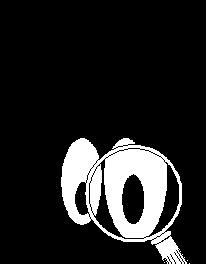
Can hot flushes have a daily pattern?
In Who Gets Hot Flashes and When? the (United States) Breastcancer.org elaborate on:
“The most common time of onset is between six and eight in the morning, and between six to ten at night”.2
2. Triggers
What triggers can set off a hot flush?
In Hot Flashes: What Can Trigger A Hot Flash? the (United States) Cleveland Clinic elaborate:
- Hot weather
- Heat
- Smoking
- Caffeine
- Alcohol
- Spicy foods
- Tight clothing
- Stress”.3
In Hot Flashes: Diagnosis & Treatment – Lifestyle and Home Remedies the (United States) Mayo Clinic explain:
- “Watch what you eat and drink. Hot and spicy foods, caffeinated beverages and alcohol can trigger hot flashes. Learn to recognize your triggers and avoid them”.4
3. Healthy Lifestyle
Is there an association between health lifestyle choices and menopause symptoms?
In Looking After Yourself the (Australian) Jean Hailes for Women’s Health (JH) explain:
“During menopause, it’s important to look after yourself. Healthy lifestyle choices will help to improve physical and emotional symptoms at every stage of menopause”.5
4. Weight
Is there an association between weight and hot flushes?
In Managing Your Symptoms: Managing Hot Flushes and Night Sweats – Maintain A Healthy Weight the JH note:
“Maintaining a healthy weight may help to improve menopausal symptoms. There is some evidence that weight gain can increase the severity of hot flushes and night sweats. More severe symptoms are associated with being overweight”.6
5. Alcohol
Is there an association between alcohol and hot flushes?
Yes and no. In Drink To Your Health At Menopause, or Not? How Much Is Bad? the NAMS elaborate on:
- “Drinking may trigger hot flashes for some women, although that isn’t based in research. So determine whether it’s a personal trigger for you. (As for a general risk of experiencing hot flashes and night sweats, some studies find alcohol increases it, whereas others find the opposite)”.7
6. Smoking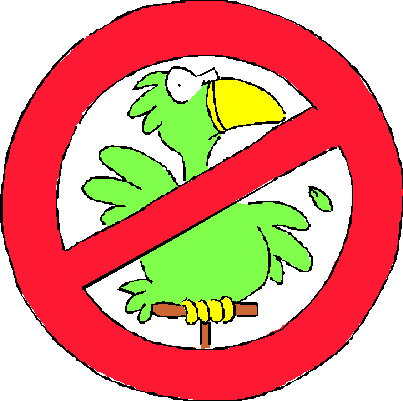
Is there an association between smoking and hot flushes?
In Looking After Yourself: Smoking and Other Drugs the JH note:
According to the Mayo Clinic:
- “Don’t smoke. Smoking is linked to increased hot flashes. By not smoking, you might reduce hot flashes, as well as your risk of many serious health conditions, such as heart disease, stroke and cancer”.9
7. Attitude
Is there an association between attitude and hot flushes?
In Make Your Menopause A Positive Experience the author elaborates on:
“The attitude with which you embark upon this transition can have a tremendous impact on your experience of it, as well as on your choice of behaviors. Many of the changes that come with menopause and aging aren’t avoidable, but how you experience menopause and the years that follow has much to do with your attitude. Far from being the end of life, you may find menopause to be a new beginning, one that can be lived richly, fully, and in good overall health. Knowing the spectrum of what’s a normal experience may help ease your concerns and help you to prepare for what’s to come”.10
8. Stress
Is there an association between stress and hot flushes?
In Symptoms of Menopause: Hot Flushes & Night Sweats the JH elaborate on:
“Many studies suggest that stress and anxiety can influence the frequency and intensity of hot flushes. Some foods or alcohol can also have an impact”.11
9. Relaxation, Meditation, Mindfulness and Yoga
Is there an association between relaxation, meditation, mindfulness, yoga and hot flushes?
In Managing Your Symptoms: Managing Hot Flushes and Night Sweats – Reduce Stress the JH note:
Cognitive behavioural therapy (CBT) has been shown to be effective in managing hot flushes and night sweats. While CBT doesn’t usually reduce the frequency of hot flushes, it can reduce their impact.
There is some evidence that breathing and relaxation techniques can help you manage the impact of hot flushes.
Yoga has also been shown to be a safe and effective way to reduce menopausal symptoms, including hot flushes”.12
In Hot Flashes: Diagnosis & Treatment – Lifestyle and Home Remedies the Mayo Clinic elaborate on:
- “Practice mind-body therapies. Although evidence is inconclusive, some women find relief from mild hot flashes through mind-body therapies. Examples include meditation; slow, deep breathing; stress management techniques; and guided imagery. Even if these approaches don’t help your hot flashes, they might provide other benefits, such as easing sleep disturbances that tend to occur with menopause”.13
10. Hypnosis
Is there an association between hypnosis and hot flushes?
In 4 Things To Know About Menopausal Symptoms and Complementary Health Practices. 1 according to the NCCIH:
- “Mind and body practices such as hypnosis, mindfulness meditation, and tai chi may help improve some menopausal symptoms. Researchers looked at mind and body therapies for menopausal symptoms and found that tai chi and meditation-based programs may be helpful in reducing common menopausal symptoms including the frequency and intensity of hot flashes, sleep and mood disturbances, stress, and muscle and joint pain. There is also some evidence that hypnotherapy may help women manage hot flashes”.14
11. Sleep
Is there an association between sleep and hot flushes?
In Hot Flashes: What’s the Connection To Sex? Sleep Disturbances and Reduced Energy the NAMS elaborate on:
“Although studies have not shown a clear cause-and-effect relationship between hot flashes and sleep disturbance, nighttime hot flashes and night sweats certainly do not make for restful sleep. The result can be fatigue and less energy for sex”.15
12. Sex
Is there an association between sex and hot flushes?
In Hot Flashes: What’s the Connection To Sex? the NAMS elaborate on:
“Studies have shown that severe hot flashes can be negatively associated with sexual activity”.16
13. Natural Products
Is there an association between natural products and hot flushes?
In 4 Things To Know About Menopausal Symptoms and Complementary Health Practices. 2 the (United States) National Center for Complementary and Integrative Health (NCCIH) elaborate on:
“Many natural products, such as black cohosh, soy isoflavone supplements, and DHEA, have been studied for their effects on menopausal symptoms, but scientists have found little evidence that they are helpful. There is also no conclusive evidence that the herbs red clover, kava, or dong quai reduce hot flashes”.17
In Menopause and Natural Therapies: Hot Flushes and Night Sweats the JH elaborate on:
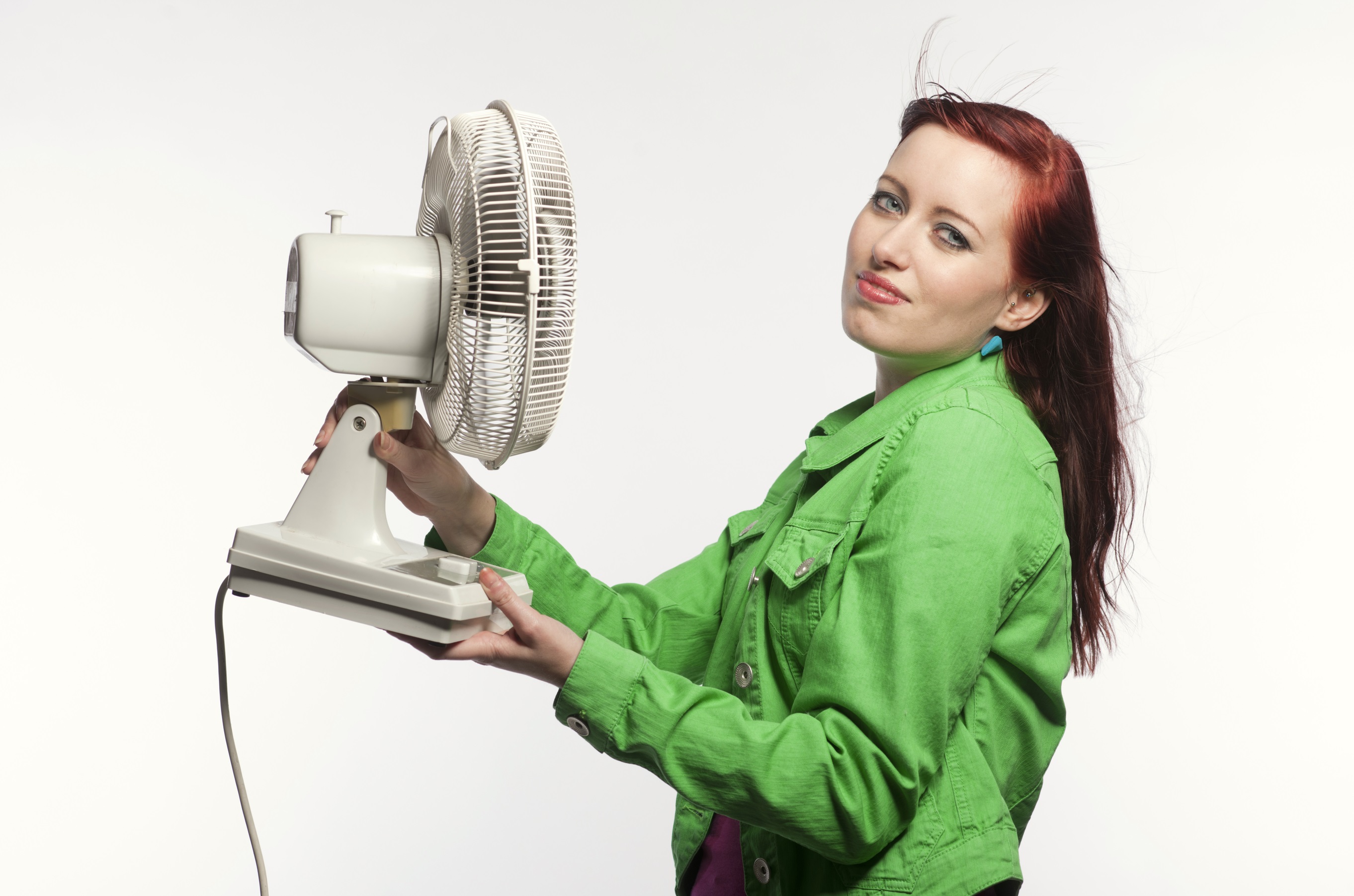 “Many herbal therapies have been tried for relief of hot flushes and night sweats in menopausal women. Some herbs have been found to be effective in reducing hot flushes, whereas others have been found to be no better than a placebo (dummy medicine). Some have not been studied rigorously”.18
“Many herbal therapies have been tried for relief of hot flushes and night sweats in menopausal women. Some herbs have been found to be effective in reducing hot flushes, whereas others have been found to be no better than a placebo (dummy medicine). Some have not been studied rigorously”.18
14. Phytoestrogens
Is there an association between phytoestrogens and hot flushes?
In Hot Flashes: Diagnosis & Treatment – Alternative Medicine: Dietary Supplements the Mayo Clinic explain:
- “Plant estrogens. Asian women, who consume soy regularly, are less likely to report hot flashes and other menopausal symptoms than are women in other parts of the world. One reason might be related to the estrogen-like compounds in soy.However, studies have generally found little or no benefit with plant estrogens, although research is ongoing to determine whether specific components of soy, such as genistein, help hot flashes”.19
15. Non Hormone Treatment Effectiveness
What does the North American Menopause Society’s (NAMS) Non Hormone Treatments for Hot Flashes and Night Sweats explain?
On pages one and two in Nonhormone Treatments for Hot Flashes and Night Sweats, published July 2023, the NAMS explain:
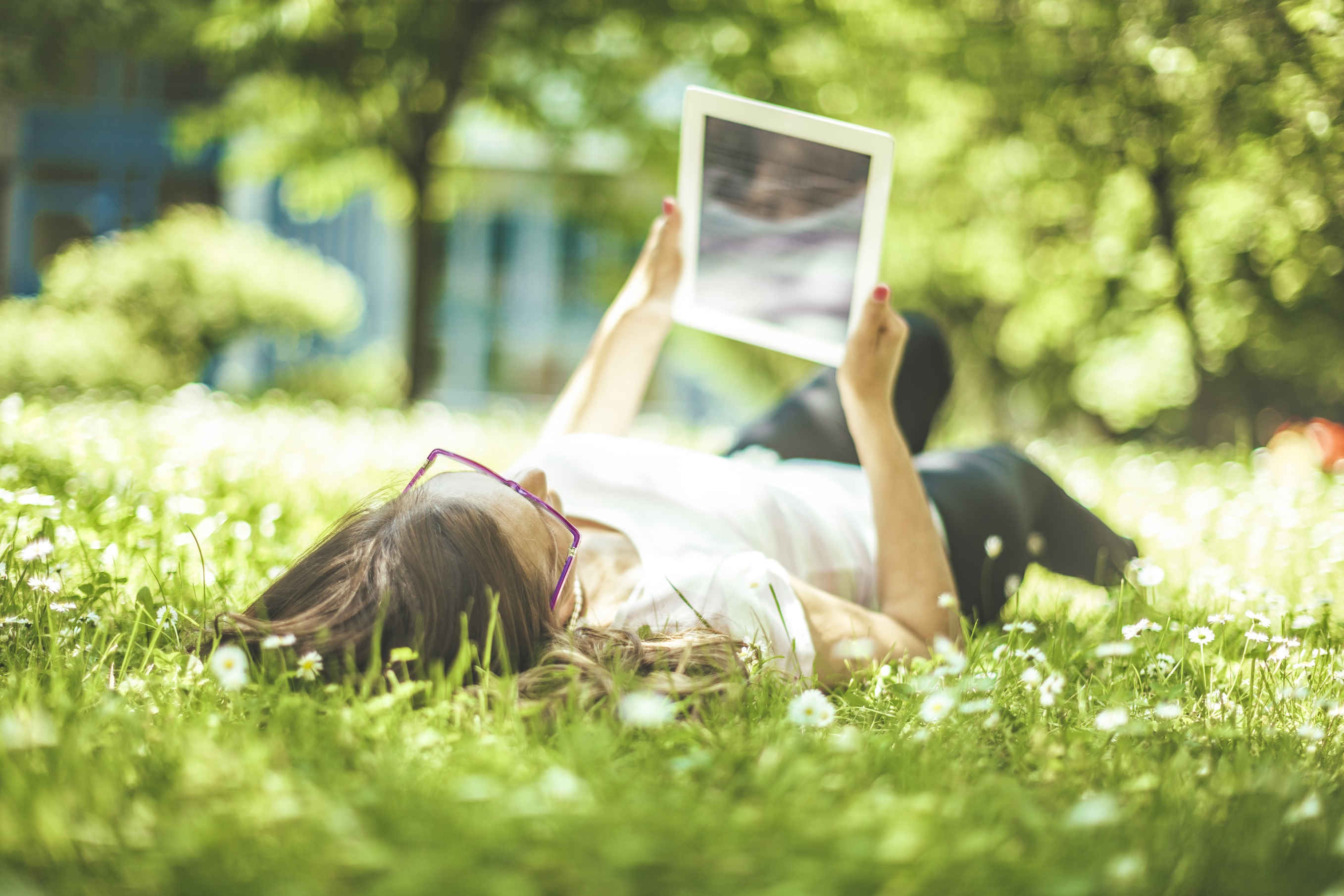 “Nonhormone Treatment Options
“Nonhormone Treatment Options
Recommended
The treatments with research showing they are effective for treating VMS include:
- Clinical Hypnosis…
- Cognitive-Behavioral Therapy…
- Fezolinetant
- Gabapentin
- Oxybutynin
- SSRIs/SNRIs
- Stellate Ganglion Block
- Weight Loss
Not Recommended
Treatments not recommended for VMS either because there is evidence showing that they do not reduce VMS or because there is not enough evidence showing that they are effective in reducing VMS include acupuncture, paced respirations, supplements/herbal remedies, cooling techniques, avoidance of triggers, dietary modification, exercise, yoga, mindfulness-based intervention, relaxation, suvorexant, cannabinoids, calibration of neural oscillations, chiropractic interventions, clonidine, and pregabalin”.20
What are VMS?
VMS can be an abbreviation for Vasomotor Symptoms which include hot flushes and night sweats.
In The 2023 Practitioner’s Toolkit for Managing Menopause: Management – Non-Hormonal Options With Evidence To Support Efficacy, published online 30 October 2023, the authors explain:
16. Hormone Therapy
What is the most effective treatment for hot flushes?
On page one in The North American Menopause Society Releases Its 2022 Hormone Therapy Position Statement, published 07 July 2022, the NAMS note:
- “Hormone therapy remains the most effective treatment for vasomotor symptoms (VMS) and the genitourinary syndrome of menopause (GSM) and has been shown to prevent bone loss and fracture”.22
Health Care Provider
What if I would like help with my hot flushes management?
If you would like help with your hot flushes management, it may be in your best interest to choose to talk to your health care provider about this. Together you can look for a pattern, discuss your options and if required, agree on who maybe the best person to help you.
The Mayo Clinic note:
“Discuss the pros and cons of various treatments with your doctor. If hot flashes don’t interfere with your life, you probably don’t need treatment. Hot flashes subside gradually for most women, even without treatment, but it can take several years for them to stop”.23
Health Topics A-Z
Where may I find Health Topics A-Z related to Hot Flushes Management?
In Health Topics A-Z you may find:
Links
Where may I find Links related to Hot Flushes Management?
Your Country may have Links similar to:
Links
This Links List to third party websites is neither comprehensive nor exhaustive. Inclusion on this Links List does not imply endorsement or recommendation. Non-inclusion on this Links List does not imply non-endorsement or non-recommendation. Third party websites are not under the control of Meno Martha International Menopause Directory. Third party websites may contain explicit medical images and/or sexual references. Please read Meno Martha International Menopause Directory’s Links Policy before proceeding to a Link. Please contact Webmaster if you experience a problem with a Link.New or Updated
- An Ob-Gyn’s Top Tips for Managing Hot Flashes
- Menopause and HRT: Fact and Fiction [Video] [31 May 2024]
- Menopause: Understanding the Changes and Finding Relief | Dr Susan Davis | The Proof Podcast EP 256
- Video Series-2024: Preparing for Your Menopause Health Care Visit [13 January 2024]
- Webinars: Previous – Non-Pharmacological Interventions For VMS
- What Are the Most Common Symptoms of Menopause? And Which Can Hormone Therapy Treat? [14 March 2024]
- 8 Myths and Truths About Menopausal Hot Flashes
- ACOG Explains: Managing Menopause Symptoms [American College of Obstetricians and Gynecologists]
- An Ob-Gyn’s Top Tips for Managing Hot Flashes
- Askearlymenopause.org [Ask EM] [+ Video: What Is Early Menopause?]
- BMS TV: Bioidentical Hormones
- BMS TV: Hormone Replacement Therapy (HRT)
- Bioidentical Hormone Therapy
- Bioidentical Hormones: Are They Safer?
- Cognitive Behaviour Therapy (CBT) for Menopausal Symptoms
- Compounded Bioidentical Hormone Therapy [Video]
- Deciding About Hormone Therapy
- Deciding About Hormone Therapy Use
- Dr Louise Newson: The Truth About the Menopause & HRT
- Find A Menopause Practitioner [United States and Other]
- Find An AMS Doctor [Australasian Menopause Society i.e. Australia and New Zealand]
- Find Your Nearest BMS Menopause Specialist [British Menopause Society]
- HRT – Types, Doses and Regimens
- HRT: Benefits and Risks
- Hormone Replacement Therapy (HRT)
- Hormone Replacement Therapy (HRT): Alternatives To Hormone Replacement Therapy (HRT)
- Hormone Therapy: Four Things A Mayo Clinic Women’s Health Specialist Wants You To Know [+ Video Courtesy: Mayo Clinic News Network. Name Super/CG: Taryn Smith, M.D./Internal Medicine/Mayo Clinic]
- Hormone Therapy: Is It Right for You?
- Hot Flash FAQs: Triggers, Symptoms & Treatments – What Are the Treatments for Hot Flashes?
- Hot Flashes
- Hot Flashes
- Hot Flashes: Diagnosis & Treatment
- Hot Flashes: What Can I Do? [+ Video: What Are the Signs and Symptoms of Menopause?]
- Hot Flushes, Night Sweats, Brain Fog? Here’s What We Know About Phytoestrogens for Menopausal Symptoms
- How Fezolinetant Changes Management of Hot Flashes [Video]
- How Long Will I Have Hot Flashes and What Causes Them?
- How To Manage and Reduce Stress
- I Forgot To Ask the Doctor – E9: The Menopause: Can Every Woman That Wants It Have HRT?
- Joint Position Statement By the British Menopause Society, Royal College of Obstetricians and Gynaecologists and Society for Endocrinology on Best Practice Recommendations for the Care of Women Experiencing the Menopause
- Later Years (Around 50 Years and Over): Menopause and Post Menopause Health – Hormone Replacement Therapy (HRT) [+ Video: Is HRT Bad for You?] [Other Languages and Formats]
- Later Years (Around 50 Years and Over): Menopause and Post Menopause Health – Signs and Symptoms of Menopause [+ Video: Talking Menopause With Your GP] [Other Languages and Formats]
- Looking After Yourself
- Managing Menopause
- Mayo Clinic Minute: Help With Hot Flashes Due To Menopause [+ Video Courtesy: Mayo Clinic News Network]
- Mayo Clinic Minute: How Lifestyle Changes May Help Manage Menopause Symptoms [+ Video]
- Meditation: A Simple, Fast Way To Reduce Stress
- Mayo Clinic Minute: Perimenopause and Menopause [+ Video Courtesy: Mayo Clinic News Network]
- Menopause
- Menopause FAQs: Hot Flashes
- Menopause Map: Downloadable Resources – My Personal Path Print Tools: Questions for Your Health Care Provider

- Menopause Map: Downloadable Resources – My Personal Path Print Tools: Symptom Tracker
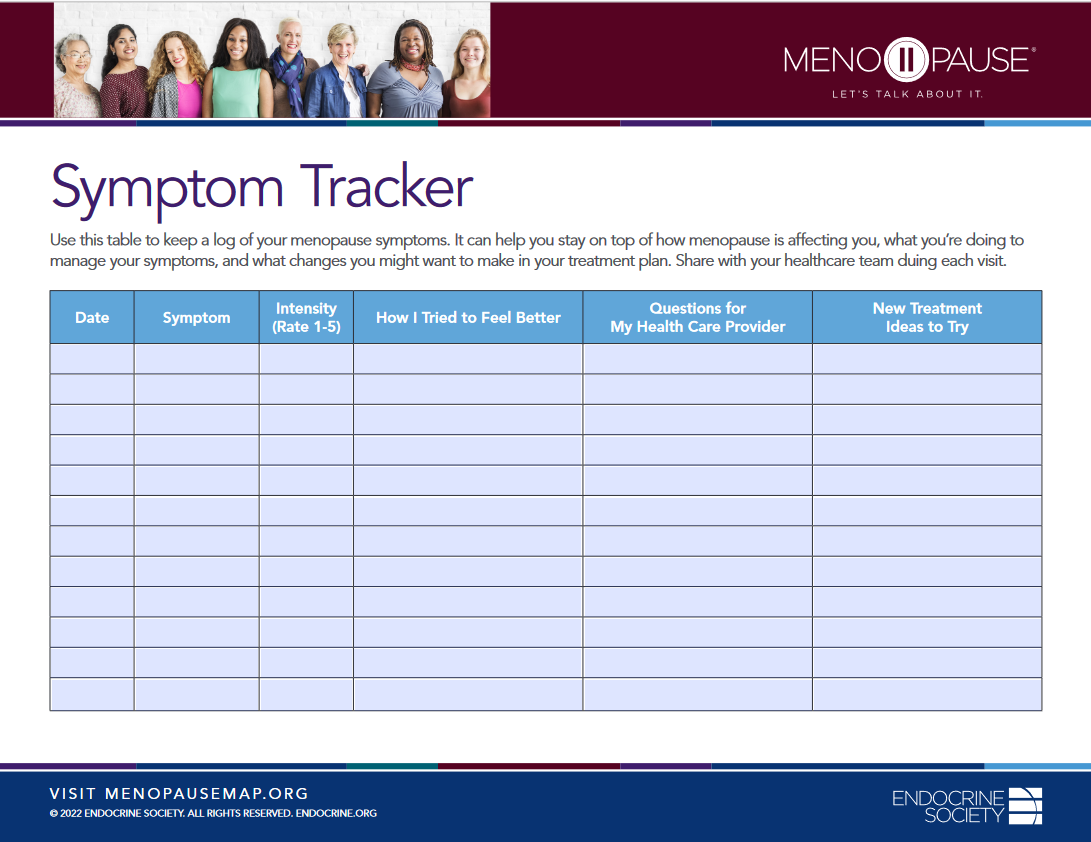
- Menopause Patient Information [Videos] 4. The Different Types of HRT
- Menopause Patient Information [Videos] 5. Lifestyle Advice In Menopause & Perimenopause
- Menopause Mindfulness: A Personal Toolkit for Menopause Preparedness
- Menopause Preparedness Toolkit Video Series: Lifestyle Tips for Menopause
- Menopause Preparedness Toolkit Video Series: Mindfulness & Wellbeing During the Menopause Transition
- Menopause Preparedness Toolkit Video Series: Treating Vasomotor Symptoms of Menopause
- Menopause Preparedness Toolkit: A Woman’s Empowerment Guide
- Menopause Symptoms: Hot Flashes
- Menopause Symptoms: Mayo Clinic Expert Outlines Hormone and Nonhormonal Therapies
- Menopause Treatment
- Menopause Treatments: What Works, What Doesn’t
- Menopause and HRT
- Menopause and HRT: Fact and Fiction
- Menopause and Natural Therapies
- Menopause, Perimenopause, Hormone Therapy and Other Treatments With Madelyn Butler, MD [Podcast]
- Menopause-Related Hot Flashes and Night Sweats Can Last for Years
- Menopause: Diagnosis & Treatment
- Menopause: Diagnosis and Management – Information for the Public: Managing Your Symptoms [NICE Guideline]
- Menopause: Diagnosis and Management – Information for the Public: Questions To Ask About Menopause [NICE Guideline]
- Menopause: Understanding the Changes and Finding Relief | Dr Susan Davis | The Proof Podcast EP 256
- National Center for Complementary and Integrative Health: Flaxseed and Flaxseed Oil
- National Center for Complementary and Integrative Health: Herbs At A Glance
- National Center for Complementary and Integrative Health: How Safe Is This Product or Practice?
- National Center for Complementary and Integrative Health: Milk Thistle [Silybum Marianum]
- National Center for Complementary and Integrative Health: Red Clover
- National Center for Complementary and Integrative Health: Sage
- National Center for Complementary and Integrative Health: Soy
- Natural Remedies To Help Manage Perimenopause Symptoms
- Navigating Menopause: Expert Insights and Solutions | Dr Susan Davis | The Proof Podcast EP 245
- Navigating Menopause: Honest Answers To All Your Questions [+ Video: What To Expect in Menopause]
- Non-Estrogen Treatments for Menopausal Symptoms
- Nonhormone Treatments for Hot Flashes and Night Sweats
- Office of Dietary Supplements: Black Cohosh
- Office of Dietary Supplements: Dietary Supplement Fact Sheets
- Perimenopause and Menopause Checklist: Translated Checklists
- Perimenopause: Symptoms and Causes
- Physical Activity and Exercise for Hot Flashes: Trigger or Treatment?
- Risks and Benefits of MHT
- Self-Help Tool: Menopause and Mental Wellbeing
- Symptoms of Menopause: Hot Flushes & Night Sweats
- The 2023 Practitioner’s Toolkit for Managing Menopause
- The Reality of Menopause Weight Gain
- The Truth About Hormone Therapy for Menopause
- The Truth About Menopause Supplements | Dr Sarah Berry
- Tips To Help Manage Menopause Symptoms
- Using Natural Therapies In the Menopause Transition – Webinar
- Video Series-2022: Hormone Therapy: Understanding the Risks and Benefits
- Video Series-2023: NAMS 2023 Nonhormone Therapies Position Statement for Bothersome Menopause Symptoms
- Video Series-2023: New FDA-Approved Nonhormone Option for the Treatment of Hot Flashes
- Video Series-2023: Premature and Early Menopause
- Video Series-2024: Preparing for Your Menopause Health Care Visit
- Videos and Podcasts: Videos – Interviews: A Simple Approach To Menopause: The Menopause Quick Six (www.MQ6.ca)
- Webinars: Previous – Non-Hormonal Pharmacological Interventions For VMS
- Webinars: Previous – Non-Pharmacological Interventions For VMS
- What Can I Do To Help With Hot Flashes?
Sources
Where may I find the Sources quoted?
You may find the Sources quoted at:
Sources
- Looking After Yourself. Last Updated: 19 January 2024 | Last Reviewed: 19 August 2022. Jean Hailes for Women’s Health https://www.jeanhailes.org.au/health-a-z/menopause/looking-after-yourself Accessed: 04 June 2024
- Who Gets Hot Flashes and When? Last Updated: 01 February 2022. Breastcancer.org https://www.breastcancer.org/tips/menopausal/treat/hot-flashes/who Accessed: 04 June 2024
- Hot Flashes: What Triggers A Hot Flash? Last Reviewed: 21 March 2022. Cleveland Clinic https://my.clevelandclinic.org/health/articles/15223-hot-flashes Accessed: 04 June 2024
- Hot Flashes: Diagnosis & Treatment – Lifestyle and Home Remedies. 12 December 2023. Mayo Clinic https://www.mayoclinic.org/diseases-conditions/hot-flashes/diagnosis-treatment/drc-20352795 Accessed: 04 June 2024
- Looking After Yourself. Last Updated: 19 January 2024 | Last Reviewed: 19 August 2022. Jean Hailes for Women’s Health https://www.jeanhailes.org.au/health-a-z/menopause/looking-after-yourself Accessed: 04 June 2024
- Managing Your Symptoms: Managing Hot Flushes and Night Sweats – Maintain A Healthy Weight. Last Updated: 19 December 2023 | Last Reviewed: 19 August 2022. Jean Hailes for Women’s Healthhttps://www.jeanhailes.org.au/health-a-z/menopause/managing-your-symptoms#managing-hot-flushes-and-night-sweats Accessed: 04 June 2024
- Drink To Your Health At Menopause, or Not? How Much Is Bad? North American Menopause Society https://www.menopause.org/for-women/menopauseflashes/exercise-and-diet/drink-to-your-health-at-menopause-or-not Accessed: 04 June 2024
- Looking After Yourself: Smoking and Other Drugs. Last Updated: 19 January 2024 | Last Reviewed: 19 August 2022. Jean Hailes for Women’s Health https://www.jeanhailes.org.au/health-a-z/menopause/looking-after-yourself#smoking-and-other-drugs Accessed: 04 June 2024
- Hot Flashes: Diagnosis & Treatment – Lifestyle and Home Remedies. 12 December 2023. Mayo Clinic https://www.mayoclinic.org/diseases-conditions/hot-flashes/diagnosis-treatment/drc-20352795 Accessed: 04 June 2024
- Make Your Menopause A Positive Experience. North American Menopause Society https://www.menopause.org/for-women/menopauseflashes/menopause-symptoms-and-treatments/make-your-menopause-a-positive-experience Accessed: 04 June 2024
- Symptoms of Menopause: Hot Flushes & Night Sweats. Last Updated: 21 April 2024 | Last Reviewed: 19 August 2022. Jean Hailes for Women’s Health https://www.jeanhailes.org.au/health-a-z/menopause/menopause-symptoms Accessed: 04 June 2024
- Managing Your Symptoms: Managing Hot Flushes and Night Sweats – Reduce Stress. Last Updated: 19 December 2023 | Last Reviewed: 19 August 2022. Jean Hailes for Women’s Healthhttps://www.jeanhailes.org.au/health-a-z/menopause/managing-your-symptoms#managing-hot-flushes-and-night-sweats Accessed: 04 June 2024
- Hot Flashes: Diagnosis & Treatment – Lifestyle and Home Remedies. 12 December 2023. Mayo Clinic https://www.mayoclinic.org/diseases-conditions/hot-flashes/diagnosis-treatment/drc-20352795 Accessed: 04 June 2024
- 4 Things To Know About Menopausal Symptoms and Complementary Health Practices. 4. National Center for Complementary and Integrative Health https://nccih.nih.gov/health/tips/menopause Accessed: 04 June 2024
- Hot Flashes: What’s the Connection To Sex? Sleep Disturbances and Reduced Energy. North American Menopause Society https://www.menopause.org/for-women/sexual-health-menopause-online/causes-of-sexual-problems/hot-flashes Assessed: 04 June 2024
- Hot Flashes: What’s the Connection To Sex? North American Menopause Society https://www.menopause.org/for-women/sexual-health-menopause-online/causes-of-sexual-problems/hot-flashes Assessed: 04 June 2024
- 4 Things To Know About Menopausal Symptoms and Complementary Health Practices. 2. National Center for Complementary and Integrative Health https://nccih.nih.gov/health/tips/menopause Accessed: 04 June 2024
- Menopause and Natural Therapies: Hot Flushes and Night Sweats. Last Updated: 19 January 2024 | Last Reviewed: 20 November 2018. Jean Hailes for Women’s Health https://jeanhailes.org.au/health-a-z/natural-therapies-supplements/phytoestrogens Assessed: 04 June 2024
- Hot Flashes: Diagnosis & Treatment – Alternative Medicine: Dietary Supplements. 12 December 2023. Mayo Clinic https://www.mayoclinic.org/diseases-conditions/hot-flashes/diagnosis-treatment/drc-20352795 Accessed: 04 June 2024
- Nonhormone Treatments for Hot Flashes and Night Sweats. July 2023:1-2. North American Menopause Society https://www.menopause.org/docs/default-source/default-document-library/nonhormone-treatment-menonote.pdf Accessed: 04 June 2024
- Davis, S. R., Taylor, S., Hemachandra, C., Magraith, K., Ebeling, P. R., Jane, F., and Islam, R. M. The 2023 Practitioner’s Toolkit for Managing Menopause: Management – Non-Hormonal Options With Evidence To Support Efficacy. Published Online: 30 October 2023 https://www.tandfonline.com/doi/full/10.1080/13697137.2023.2258783 Accessed: 04 June 2024
- The North American Menopause Society Releases Its 2022 Hormone Therapy Position Statement. 07 July 2022:1 North American Menopause Society https://www.menopause.org/docs/default-source/press-release/ht-position-statement-release.pdf Accessed: 04 June 2024
- Hot Flashes: Diagnosis & Treatment – Treatment. 12 December 2023. Mayo Clinic https://www.mayoclinic.org/diseases-conditions/hot-flashes/diagnosis-treatment/drc-20352795 Accessed: 04 June 2024



